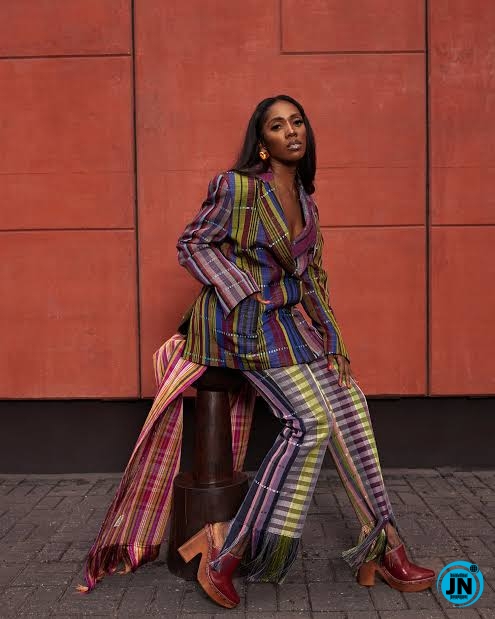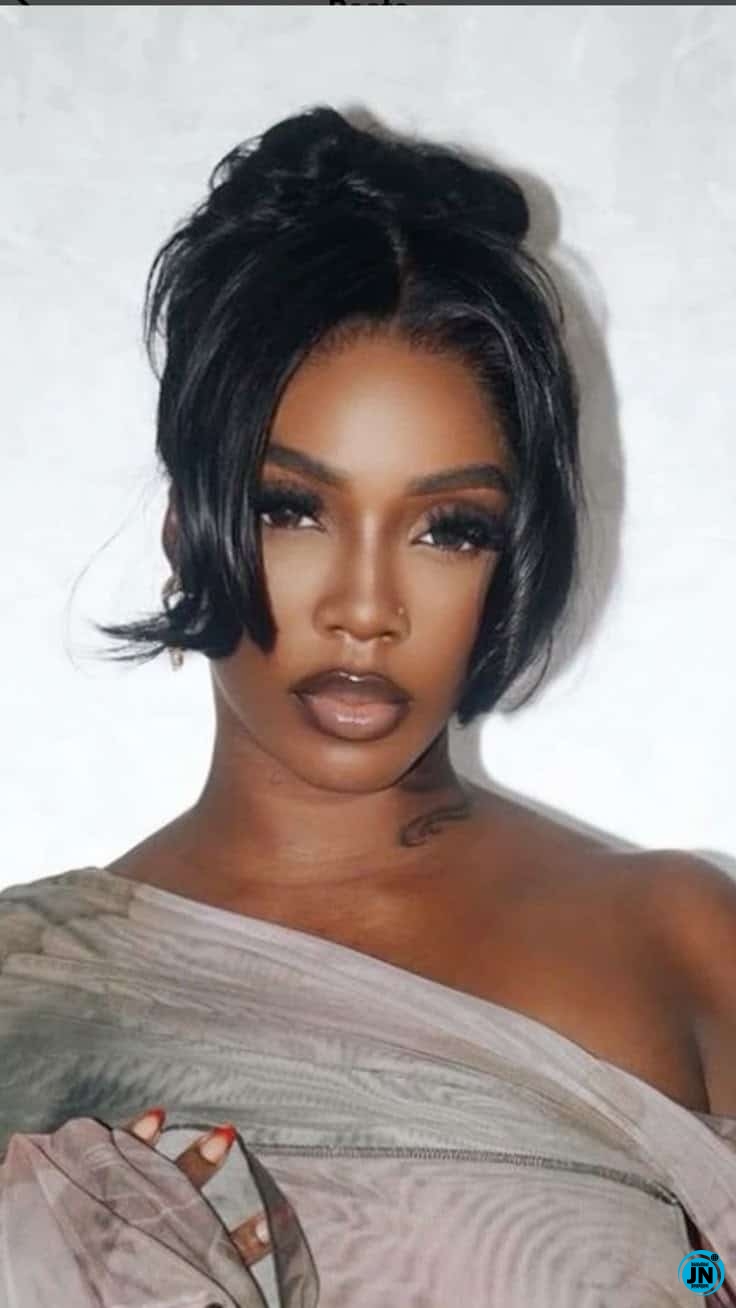Award-winning Nigerian singer and global Afrobeats icon Tiwa Savage has made a surprising and humorous revelation about one of her most memorable collaborations — the Mavin Records hit song Dorobucci. The singer, who has earned recognition both locally and internationally for her incredible talent and vocal power, confessed that she initially thought the track was “crap” when she first heard it. At the time, she had no idea that the same song she doubted would later become a record-breaking hit and one of the defining anthems of Nigerian pop music.
Speaking during an exclusive interview with NotJustOk, Tiwa Savage recounted the early days leading up to the creation of Dorobucci, a song that would go on to solidify Mavin Records’ dominance in the Afrobeats scene. She revealed that when legendary producer Don Jazzy first played the beat for her, she didn’t find it appealing and couldn’t understand the concept behind it. Tiwa admitted that, at first, the repetitive sound and unconventional rhythm didn’t click with her musically, but she kept her opinions to herself out of respect for Don Jazzy’s creativity. Looking back, she described the experience as a lesson in humility and a reminder that not every hit is immediately recognizable as one.

The singer recalled that the first time she heard the instrumental was during her wedding trip to Dubai. According to Tiwa, Don Jazzy had traveled with her and other members of the Mavin crew for the celebration, but instead of taking a break from music, the producer seemed completely absorbed in the track that would later become Dorobucci. “We were in Dubai for my wedding,” Tiwa said, “and Don Jazzy just kept playing this beat over and over again in the hotel. I honestly thought it was crap at first, but I couldn’t say it because everyone seemed to be feeling it.” She laughed as she told the story, recalling how Don Jazzy’s enthusiasm contrasted with her confusion about the song’s direction.
The Dubai moment that changed everything
According to Tiwa, Don Jazzy’s obsession with the beat started even before anyone else understood its potential. She described how he would sit with his laptop, repeatedly tweaking the sound, lost in the creative process while the rest of them tried to focus on the wedding festivities. “He kept saying, ‘Tiwa, this song will be a banger,’” she recounted. “But honestly, I didn’t hear what he was hearing.” After the wedding, Don Jazzy encouraged her to return to Nigeria immediately to record her verse on the song. Tiwa said she initially resisted, thinking it was time for her honeymoon, but she eventually gave in to his persistence and joined the session.
When she finally heard the completed track at the studio, Tiwa said she was stunned by how much the song had evolved. “When I heard the final version, I was flabbergasted. The transformation was unbelievable. Don Jazzy took something that sounded strange to me and turned it into magic,” she said. Tiwa admitted that her initial doubts vanished the moment she listened to the finished product, and she realized how much she had underestimated Don Jazzy’s creative vision. What she once thought was an unremarkable idea became a groundbreaking hit that redefined the sound of modern Afrobeats.

From doubt to a classic collaboration
Tiwa went on to reveal that she was actually the last artist to record her verse on Dorobucci because she still wasn’t fully convinced about the song’s potential at the time. She compared the experience to her earlier skepticism about another of her hit songs, Eminado, which also turned out to be a major success despite her initial hesitation. “I was the last person to jump on Dorobucci,” she confessed. “I didn’t think it was going to blow up like that. It just sounded too different from what I was used to.” Her honesty about the creative process drew laughter from the audience, who found it fascinating that even top artists sometimes fail to see the brilliance in a hit song until it’s completed.
Despite her early doubts, Dorobucci went on to become one of the biggest songs of its time, topping charts across Africa and beyond. The single became a cultural phenomenon, introducing catchy phrases and solidifying Mavin Records’ reputation as a powerhouse label. The collaboration featured an all-star lineup, including Don Jazzy, Dr Sid, Korede Bello, D’Prince, Reekado Banks, Di’Ja, and of course, Tiwa Savage. The track’s infectious rhythm, chorus, and vibrant energy made it an anthem for unity and celebration in Nigerian music. Tiwa said that the song’s success completely changed her perception of how creativity works and taught her the importance of trusting the process, even when it doesn’t make immediate sense.
She praised Don Jazzy’s creative instinct, acknowledging that he had once again proved her wrong with his unmatched production genius. Tiwa described Don Jazzy as a visionary producer whose ability to turn unconventional ideas into chart-topping hits continues to inspire her. She noted that working with him during her Mavin Records era helped her grow artistically and appreciate the behind-the-scenes brilliance that shapes hit music. “Don Jazzy has this gift of hearing what others can’t,” she said. “He just knows when something is going to connect with people, even when you doubt it.”
Reflecting on her journey with Mavin Records, Tiwa expressed gratitude for the creative freedom and collaboration that the label fostered. She admitted that the Dorobucci experience taught her to be more open-minded about new sounds and to trust the instincts of the producers she works with. “Sometimes, the songs that sound strange at first are the ones that make history,” she said. “I learned to trust creativity, even when I don’t fully understand it.”
Tiwa concluded her remarks with a heartfelt “shout out” to Don Jazzy, calling Dorobucci a “phenomenal” record that changed her view of teamwork and the power of collaboration. She described the track as a milestone in her career and a song that continues to bring nostalgia and joy whenever it’s played. “Every time I hear Dorobucci, I just smile,” she said. “It reminds me that sometimes, what you call ‘crap’ might just be the next classic.”